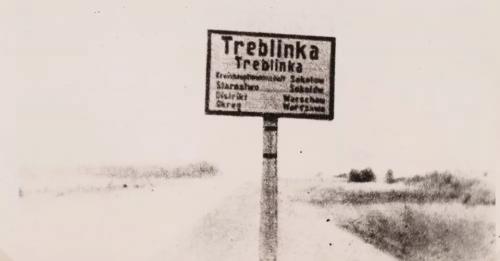Call for Papers from EHRI Partner | Conference: 80 Years after "Aktion Reinhard" (1942-1943)

SOCIAL RESPONSES AND COMMEMORATION | 21-22 September 2022, Warsaw, Poland
EHRI partner, the Emmanuel Ringelblum Jewish Historical Institute invites proposals for the international conference 80 Years after "Aktion Reinhard" (1942-1943): Social Responses and Commemoration, which will be held on 21-22 September 2022 in Warsaw, in cooperation with the Warsaw Ghetto Museum and the State Museum at Majdanek.
Aktion Reinhardt
In the spring of 1942, the Germans – under the codename Aktion Reinhardt – began to exterminate Polish Jews in the General Government district of German-occupied Poland. The Warsaw Ghetto was the largest World War II ghetto in German-occupied Europe. The largest number of Jews was transported to the Treblinka death camp between 22 July and Yom Kippur (21 September) 1942. For eight weeks, the rail shipments of Jews to Treblinka went on without stopping. By November 1943, when the Treblinka death camp was closed, more than 1,5 million Jews from Poland and other European countries were murdered in the so-called Aktion Reinhard.
The planned conference, held by the Warsaw Ghetto Museum and the Emmanuel Ringelblum Jewish Historical Institute, marks the 80th anniversary of launching the annihilation campaign against Polish Jews.
Objectives of the Conference
The first goal of this scholarly gathering is to explore the patterns of social and individual responses of the two societies, Jewish and Polish, during the period of terror and mass deportations to the death camps and the months of the extermination. The second goal is to explore and compare the course of the liquidation operations in the Warsaw Ghetto and different places of five districts of the General Government and their consequences for the Jewish communities and Polish-Jewish relations. Finally, the third goal is to examine the commemoration patterns of Aktion Reinhard’s former camps developed in Poland in the last decades.
Topics
- Between rumours and facts: When did the news of the deportees’ fate reach the ghettos?
- How did the Jews in the major ghettos respond to the information about the fate of the deportees?
- The Jews in the small and peripheral ghettos: How did they respond to the information about the deportees?
- The encounter between Jews and Poles in the “open” ghettos in light of the news regarding the deportations.
- Hiding and escaping efforts: Response of the Jewish family, the Jewish woman and individuals to the information: Between knowledge, consciousness and action.
- Diaries and Letters: Writing about the deportations at the time of their occurrence.
- Witnessing deportation: Poles in cities, small towns and villages in the face of the liquidation of the ghettos.
- Polish society and the new “black hole”: Poles in small settlements in the face of the disappearance of the Jews and the issue of abandoned Jewish property.
- Poles near the death camps: Daily life next to the extermination apparatus.
- Patterns of rescue, denunciation and extradition: Main cities and peripheral and rural communities.
- Memoirs: Post-war Jewish and Polish writing about the deportations and Shoah.
- Artistic expressions of deportations and extermination (literature, arts, cinema, theatre)
- Commemoration: Extermination camps 80 years after Aktion Reinhard.
The organizers invite researchers (young scholars in particular) of relevant disciplines such as history, sociology, psychology, cultural studies, arts, among others, to send their submissions at conference@jhi.pl. The deadline for submitting applications is 31 March 2022.
A short bio should accompany the proposal of no more than 500 words. The announcement of the submissions that were accepted will be made no later than 30 April 2022. The participants’ travel expenses to Warsaw and the hotel accommodation (up to three nights) during the conference will be covered depending on the amount of the grant awarded to the organizers. Selected papers are considered for publication.
Visit the conference webpage
Image: Jewish Historical Institute
